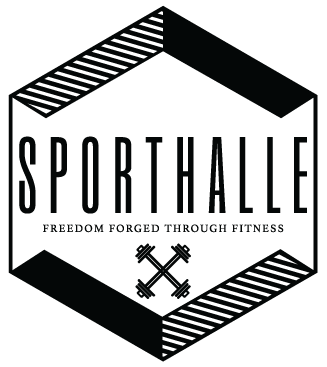As an athlete or someone who cares about their health and fitness it is important to make dietary choices that are nutritious.
One of the biggest battles faced by Americans today is contending with the high amounts of sugar that seem to be everywhere in the foods that we eat. Sugar seems to sneak its way into many of the foods and drinks we consume daily without us even realizing it. This can be detrimental to our health, training, and body composition goals because sugar can provide unnecessary calories, impact our mood, alter cognitive function and energy levels, and impact so many other vital functions in our bodies.
Sugar, What it is?
Simple sugars are the most basic form of carbohydrates known as a monosaccharides. You will often hear these referred to as glucose, fructose, and galactose. These ringed structures are also the building blocks for larger compounds such as disaccharides like sucrose (table sugar), and polysaccharides like starch (foods like potatoes, corn, and wheat).
What does it do in my body?
Our body actually runs off the simple sugar known as glucose. With the exception of individuals in nutritional ketosis, our bodies actually require sugar to perform vital functions to survival. Our brain is actually the biggest sugar hog in our body and consumes approximately 120 grams of glucose daily, thats about 420 calories worth! That glucose can come from our diet or produced through a process called gluconeogenesis in the liver.
Even though our body loves glucose it needs to moderate the levels of glucose in the bloodstream. A steady stream of glucose is preferred to large amounts because consistent excessive amounts can cause problems in our bodies. Its like filling up the gas tank in your car. You need to put in the proper amount of fuel and have a maximal capacity for storage. You keep the fuel in the gas tank even though there is more room in the trunk of your car. If you filled your trunk with gasoline it would no longer serve its useful purpose as fuel and would be very dangerous.
What if I have too much?
To prevent our body from excessive glucose levels in the blood we have the hormone insulin to help store the glucose we don’t need as fat. This is like having those handy little red 5 gallon gas containers. When the tank of the car is full we simply start filling our storage containers to save the energy for later. Having a little bit of extra fuel on reserve is always nice, but we don’t need to store extra fuel every single day or we end up with a problem.
So when can I have sugar?
As an athlete sugar is important for refueling our body after exercise. This makes sure that we have enough fuel in the tank the next time we want to go for a drive. If we want to drive fast and race however we don’t want to carry any extra storage containers in the form of fat. That will only impede performance. Most of our diet should consist of healthy fats, lean proteins, and complex carbohydrates in the form of vegetables that will not spike our blood glucose levels.
If you have questions about the optimal food choices for your diet to optimize performance you need to work with an experienced coach who gets the best out of athletes. Nutrition is a highly personalized journey and can take some refining and tweaking to optimize. Once you dial in what is best for you there is nothing that can get in your way!
